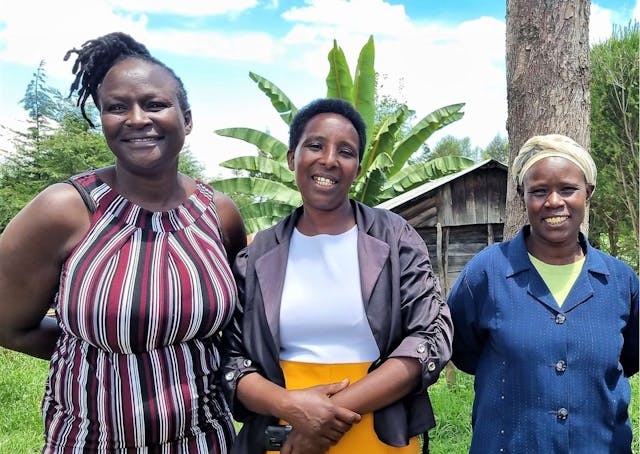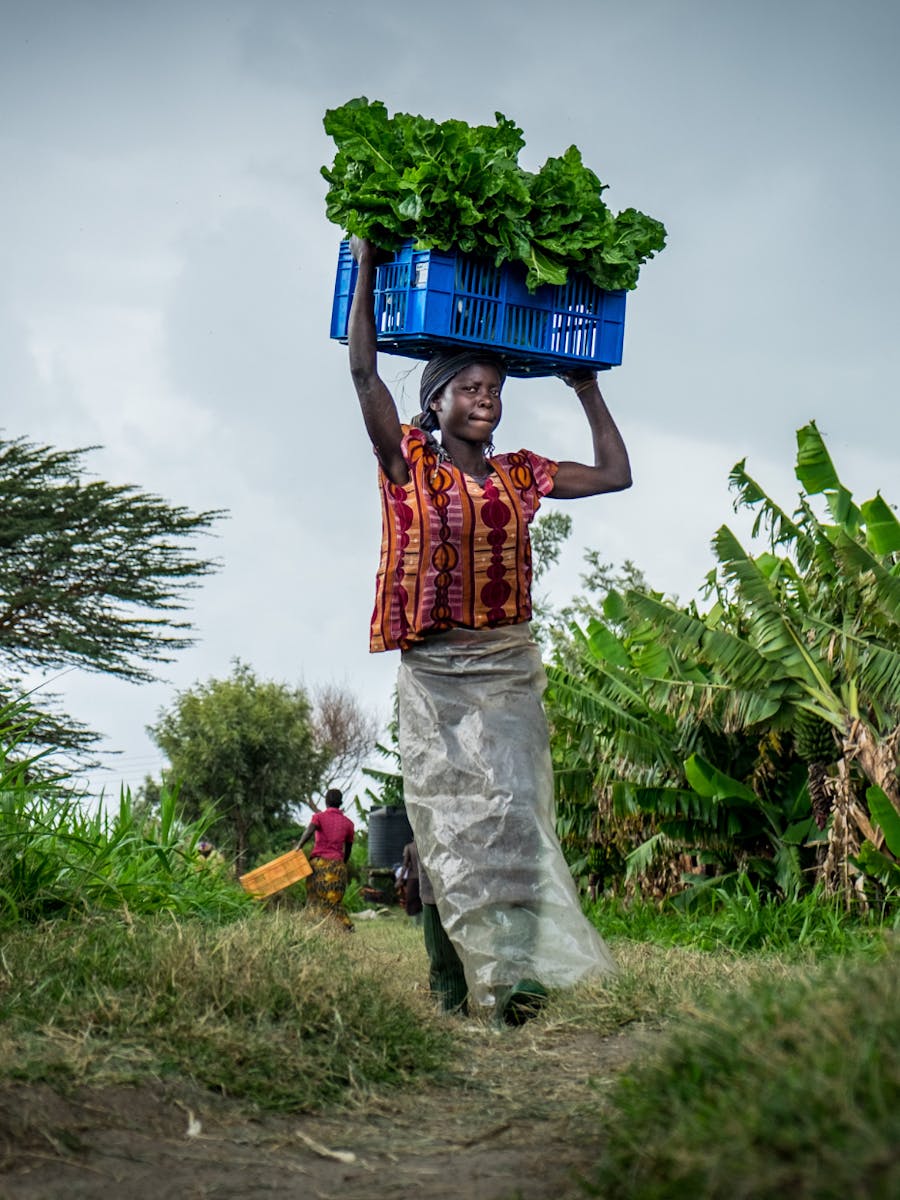
Boosting rural Kenyan women's productivity with tech
Technology is playing an increasing role in enabling financial access for female smallholder farmers in Kenya to raise their productivity
In 2021 the Global Findex survey found that the gender gap for account access in developing economies had narrowed for the first time in a decade. While this progress is heartening, the majority of unbanked adults globally remain women, with 740 million women still excluded from the financial system. In developing economies, only 68% of women have an account compared to 74% of men.
However, technology is playing an increasingly big role in bridging the access gap. In Sub-Saharan Africa in 2021, 55 percent of adults had an account, including 33 percent of adults who had a mobile money account—the largest share of any region in the world and more than three times larger than the 10 percent global average of mobile money account ownership (Global Findex 2021).
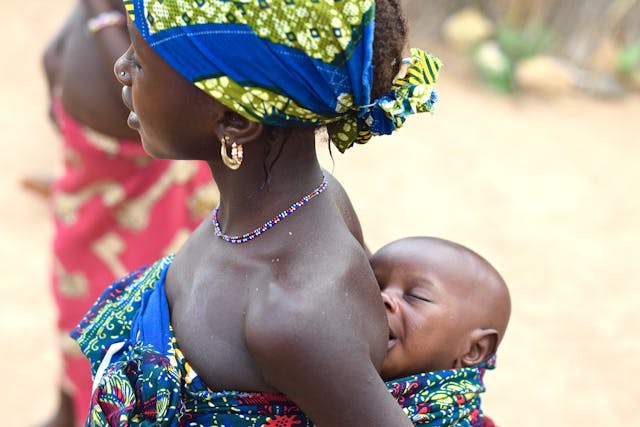
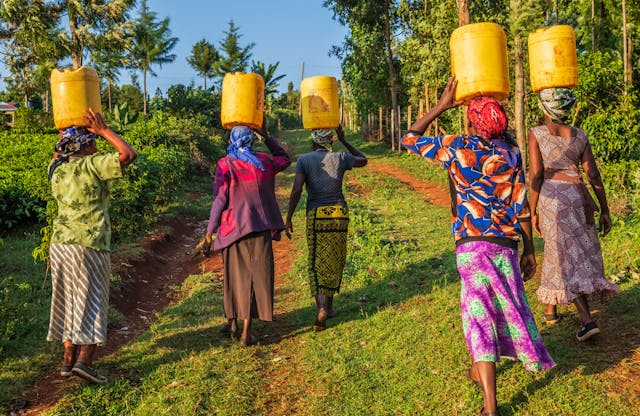
Particularly in rural areas, women face disadvantages in accessing financial services due to—amongst many factors—gendered social norms, which limit women’s freedom within households and communities and see women shouldering the brunt of unpaid care and domestic work.
The availability and uptake of digital financial services, including mobile money, has become an important enabler of financial inclusion for women in rural areas—as a connector to financial services they otherwise may have difficulty accessing.
As CGAP describes, “Time poverty” refers to the chronic lack of time – after engaging in necessary or expected duties – to pursue discretionary activities. For rural women, this can mean participating in income-generating activities or education.
Given the amount of time rural women spend on unpaid labor, they have a particular need for productive and time-saving assets and services to realize their full economic potential.
Juhudi Kilimo supporting rural women digitally
Abler Nordic is invested in Juhudi Kilimo, a microfinance institution that finances agricultural assets for smallholder farmers in Kenya to boost productivity and yields. Juhudi has a focus on economically empowering female smallholder farmers and entrepreneurs—with a client base of nearly 70% women—and uses digital platforms to facilitate this.
For women smallholder farmers, accessing financial services digitally can help them hurdle the constraints they face with competing demands on their time, mobility, and distance, and create more equitable access to financing for critical inputs such as seeds, fertilizer and farming equipment that helps them grow their productivity and income.
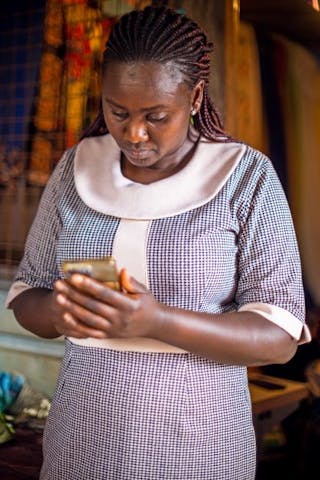
Mobile app for transactions
At the onset of the pandemic in 2020, Abler Nordic's Technical Assistance facility (funded by Norad, the Norwegian Agency for Development Cooperation) helped Juhudi Kilimo develop a mobile app that allows customers to make transactions and for Juhudi to disburse new loans digitally. Today almost 98% of Juhudi’s loans are disbursed via mobile phone with roughly 99% of customers also making mobile repayments.
Through Juhudi, farmers are also trained in financial and business management and good agricultural practices, giving them the springboard they need to establish and run a profitable business.
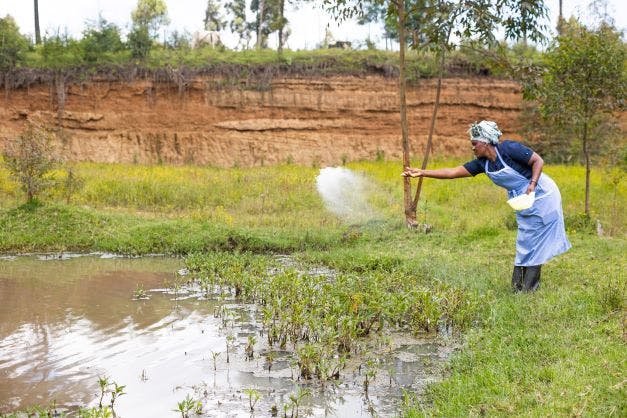
Mercy Tanui from Nakuru, Kenya, is a customer of Juhudi Kilimo and has built up several businesses including a mali mali (retail) shop, posho (maize) milling, crop planting and dairy farming.
“First we used to collect cash during our group meetings, but now with the help of technology I can run my businesses using my phone,” says Mercy. “With the help of Juhudi Kilimo, I’ve been able to start and expand my businesses, buy more dairy cows and get more knowledge on how I can undertake my agricultural activities and other businesses.”
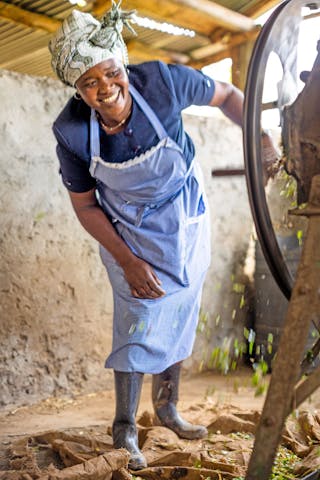
Access that matters
Juhudi Kilimo was one of the portfolio companies Abler Nordic supported in participating in the inaguaral 60 Decibels Microfinance Index in 2022, where over 18,000 end-customers from 72 microfinance institutions (MFIs) worldwide were interviewed.
The study showed that for rural people, the barriers to access are often high and affordable financial service providers are not easy to come by. Two-thirds of Juhudi Kilimo customers interviewed said they were accessing a loan for the first time and 80% said they could not find a good alternative to Juhudi Kilimo. Juhudi placed an impressive 8th out of 72 global microfinance institutions in the index.
